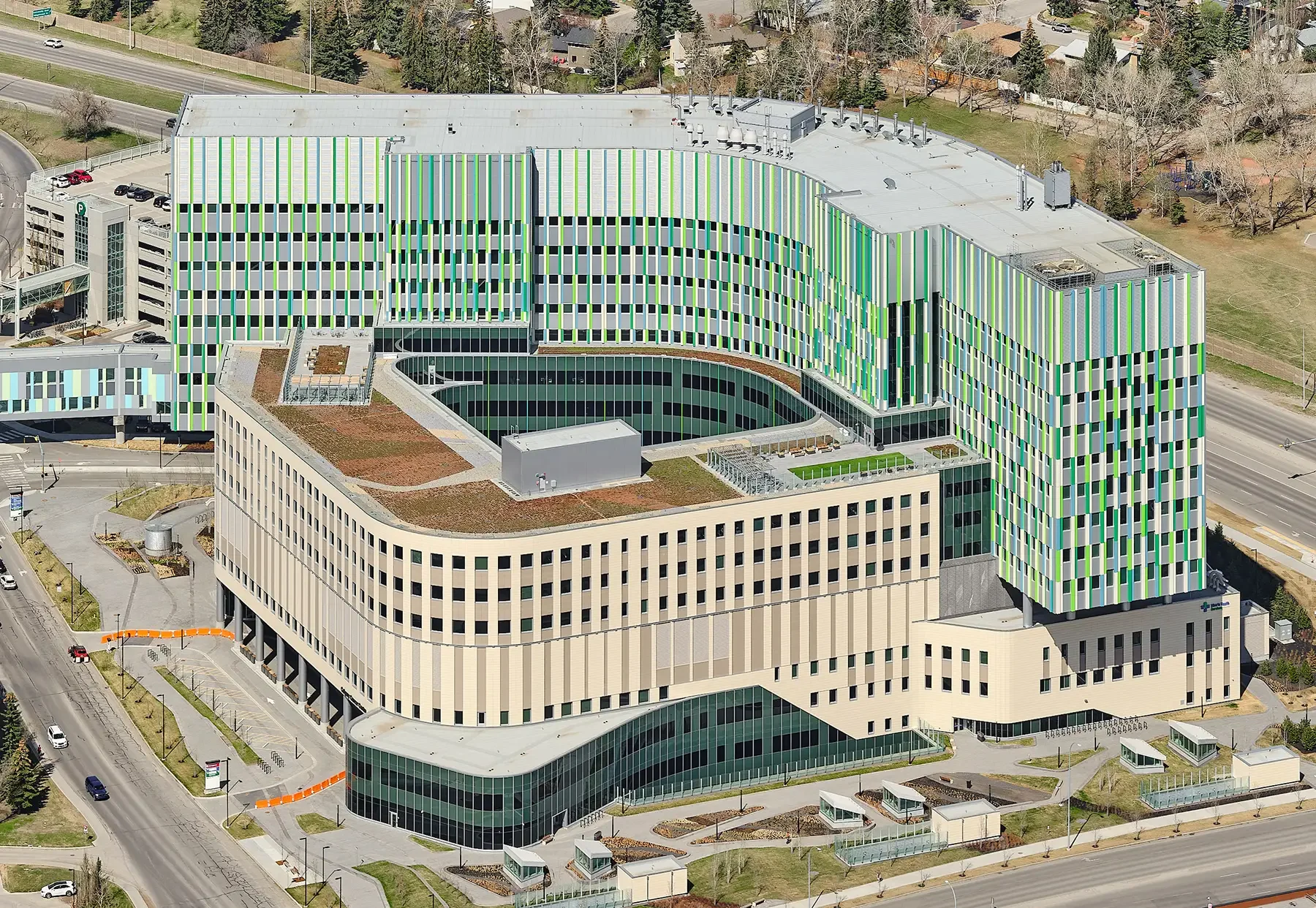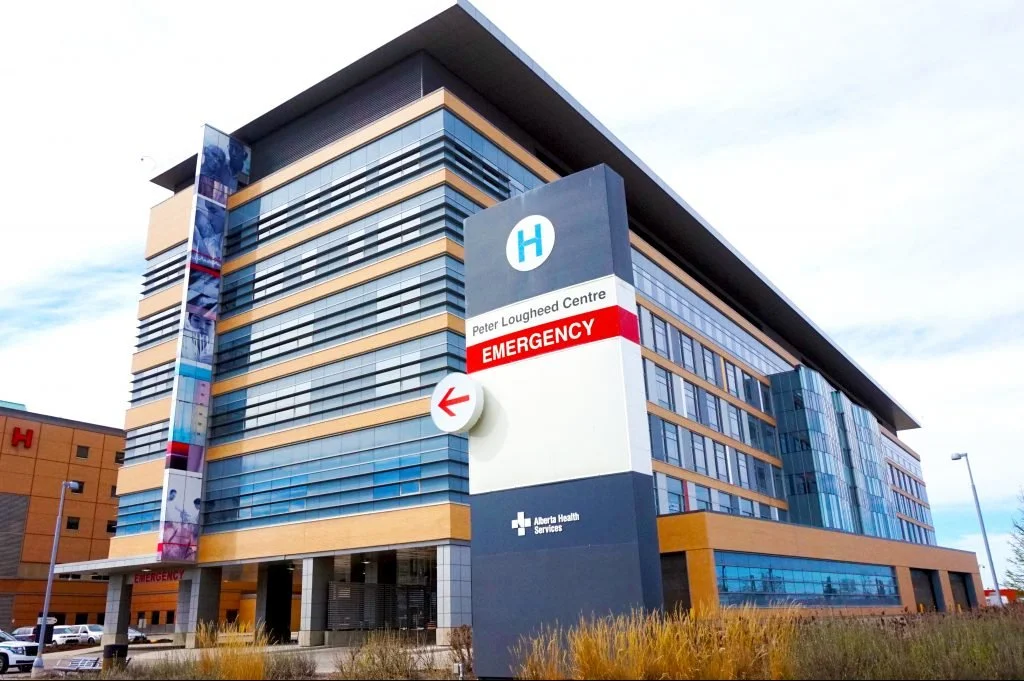Shaping the Future of Brain Health
As a highly regarded, fully accredited 5-year program, the University of Calgary’s Adult Neurology Residency Program is committed to helping our residents grow into skilled, compassionate neurologists who will shape the future of patient care and the discipline. With access to exceptional training across all areas of neurology, our residents learn alongside dedicated faculty at the forefront of clinical care, research, and innovation.
Where Discovery Meets Expertise
Residents gain unparalleled expertise across all major subspecialties, from foundational inpatient/outpatient neurology to critical care, neurophysiology, and protected research time within our Competency By Design curriculum. This rich environment, alongside close collaboration with departmental colleagues in Neurosurgery and PM&R cultivates physicians with the skills and vision to lead future advances in neurology.
Inspiring Excellence & Advancing Neuroscience
Our passion for neurosciences is palpable, drawing residents into a culture of academic rigor and exceptional teaching. With approachable staff and a diverse resident group, we foster an environment of continuous learning and collaboration, pushing the boundaries of neurological understanding.
Life in Calgary
Our program serves a vibrant, forward-thinking city where pioneering spirit meets breathtaking natural beauty. Nestled near the majestic Rocky Mountains, this historic hub offers unparalleled outdoor adventures and a thriving urban landscape. We’re proud to call Calgary home — a place that truly elevates life!
Our Training Facilities
Prospective Students
Thank you for your interest in our residency training program.
The University of Calgary’s Adult Neurology Residency Training Program is committed to developing skilled, thoughtful, and well-rounded neurologists who are equipped to provide expert care across a wide spectrum of neurological conditions. By the end of their training, our residents will be proficient in the prevention, diagnosis, and management of diseases of the nervous system, while embodying all the core CanMEDS roles; as Medical Experts, Communicators, Collaborators, Leaders, Health Advocates, Scholars, and Professionals.
Our program is built on a foundation of collegiality, respect, and open communication between residents and faculty. We believe that a supportive and collaborative learning environment is essential for growth, and we work hard to ensure our residents feel heard, valued, and challenged.
We are passionate about fostering both clinical and academic excellence. Whether our graduates go on to practice in community or academic settings, we aim to nurture the intellectual curiosity, professionalism, and leadership skills that will serve them and their patients throughout their careers. Our goal is not only to meet today’s training needs, but to prepare the next generation of neurologists to shape the future of our field.
Our goal is not to ask, “What can you offer us?” but rather, “How can we support you in becoming the neurologist you want to be?” Whether your passions lie in research, quality improvement, medical education, global health, innovation, artificial intelligence, or something entirely unique, we encourage you to reach out - we’re here to help you explore and grow your interests throughout your residency journey.
Please don’t hesitate to reach out - we’d love to hear from you!
Since 1981, University of Calgary’s Neurology Resident Training Program has provided neurologists-in-training with comprehensive supervised clinical and research experience. In addition to outstanding clinical training, the formal academic program consists of a weekly academic half-day and daily educational rounds, with additional regular seminars on ethics, communication skills and evidence-based medicine.
Curriculum
-
The residency program covers a period of five years and has been designed to meet the objectives of the Royal College of Physicians and Surgeons of Canada for Neurology Residency Programs. As of July 1, 2020, all Neurology residency programs across Canada will launch Competence by Design (CBD).
The University of Calgary Program consists of:
Transition to Neurology: 2 blocks
Foundations of Neurology: 24 blocks
Core of Neurology: 26 - 38 blocks
Transition to Practice: 6 - 12 blocks
TRANSITION TO NEUROLOGY
The first two-blocks are spent on ward-and clinic-based neurology to allow the resident to bond to the Neurology Program and their new career (transition to discipline and residency). Another three blocks of neurology are done later in the year. There is exposure to acute stroke through a Night Float rotation where the resident is paired with a Stroke Fellow; there is also time spent on the Stroke Unit. Mandatory clinic time is spent in the General Neurology, Urgent Neurology, and Lumbar Puncture Clinics; some specialty clinics may also be available. The learning objectives for these two blocks are that the resident learns to perform a complete neurological history and physical examination, interprets the findings appropriately and formulates the basic aspects of a neurological differential diagnosis including anatomical, syndromic and pathophysiological diagnoses.
FOUNDATIONS OF NEUROLOGY
In Foundations, training experiences include neurology and non-neurology rotations, including internal medicine, psychiatry, neurosurgery, neuroradiology, and emergency medicine. Internal medicine rotations include general medicine ward service and ICU/CCU and selective rotations, such as rheumatology, infectious diseases, palliative care medicine, etc. Internal medicine rotations can be adjusted to provide the resident with a strong background in medicine useful in subsequent neurology training. A block of community neurology will be included in this stage.
The Royal College also states that Foundations is meant "to give the resident a degree of independent responsibility for clinical decisions; an opportunity for further development of the skills required in making effective relationships with patients; the consolidation of competence in primary clinical and technical skills across a broad range of medical practice; and an understanding of the nature of the relationship between a referring physician and a consulting specialist."
CORE OF NEUROLOGY
This stage provides core training in clinical neurology. Neurology inpatient experience is obtained at the Foothills Medical Centre and the South Health Campus. During the inpatient general neurology rotations, the resident is responsible for the primary care of inpatients on the neurology ward, the assessment of patients in the emergency department and inpatient neurological consultations. During the stroke rotations in Core and Transition to Practice, the resident manages acute stroke and participates in the stroke fellow rota. Outpatient experience is emphasized in this program and clinical rotations which are completely clinic-based are scheduled. Clinics are available in General Neurology and several subspecialty areas, which are listed below. For most residents, rotations in neuromuscular/EMG, epilepsy/EEG, movement disorders, headache, cognitive neurology, neuro-ophthalmology and pediatric neurology comprise the balance of the Core rotations.
Residents embark on their longitudinal neurology clinic in the two years prior to Transition to Practice (see below). In the latter part of Core, the resident is expected to assume greater independence in the management of patients and more responsibility for teaching and supervising junior residents and clinical clerks. The resident also has the opportunity to participate in the teaching of second year medical students during the neurosciences portion of the medical school curriculum.
TRANSITION TO NEUROLOGY PRACTICE
The resident is now a senior neurology resident/junior consultant in inpatient and outpatient settings. They continue with senior resident's longitudinal clinics; patients are evaluated and followed by the senior resident at arm's length from the attending neurologist preceptor.
The resident is expected to assume greater independence in the management of patients and more responsibility for teaching and supervising junior residents and clinical clerks.
During this stage, the resident may select elective rotations to help launch their future career, including electromyography, electroencephalography, research, community practice, subspecialty rotations, global health work, entrepreneurship and innovation or others. Special requests for other options will be considered on an individual basis.
A robust "junior consultant" curriculum has been established to ensure graduating residents are adept at managing an inpatient service, consultation service, outside phone calls, triage, and independent practice in general.
-
Participation in the Subspecialty Clinics provides a unique opportunity for neurology residents to gain in-depth experience dealing with patients with particular groups of diseases. Subspecialty Clinics are available in each of the following areas:
General Neurology
Urgent Neurology
Movement Disorders
Cognitive Disorders
Pain/Palliative Care
Neuromuscular Diseases
Epilepsy (Adult)
Neuro-oncology (Adult)
Neuro-ophthalmology
Epilepsy (Pediatric)
Multiple Sclerosis
Neuro-inflammatory Disorders
Headache
Neuro-psychiatry
Neuro-vestibular Disorders
Functional Neurologic Disorders
-
Resident research is a mandatory part of the University of Calgary Neurology Training Program. The goal is to promote the development of knowledge, skills, and interest in the field of clinical or basic neuroscience research. The completion of a well-designed research project, whether clinical, basic, or medical educational, also will facilitate future career development. Every effort will be made to tailor the type and scope of the research project to the resident's interests and needs. Some residents will spend up to 6 months of residency training on research activities. If additional time is required, formal research training can be pursued with a pause in residency training.
The U of C Hotchkiss Brain Institute (HBI) offers salary support for residents who wish to carry out an MSc or PhD program with a clinical or basic science member of the HBI. The salary is pegged at the PGY level of the resident. Details can be found at https://hbi.ucalgary.ca/education/prospective-trainees/prospective-trainees
The U of C also has a Clinician Investigator Program https://live-cumming.ucalgary.ca/cip which is a Royal College certified program that provides the opportunity to pursue an MSc or PhD as part of the residency.
-
Residents are supported in attending academic meetings relevant to neurology and their professional development. Each resident is granted up to 7 working days per year for conference attendance. The Department of Clinical Neurosciences contributes up to $2,500 annually toward travel costs, and additional support is available through the University of Calgary’s Cumming School of Medicine when residents are presenting as first authors. Other funding sources may also be available to support resident travel.
-
For more information, please visit our program description on the Canadian Residency Matching Service website: https://www.carms.ca/program-descriptions/
Want to learn more?
Thank you for considering University of Calgary’s Neurology Resident Training Program.
Fill out the form and we’ll be in touch.









